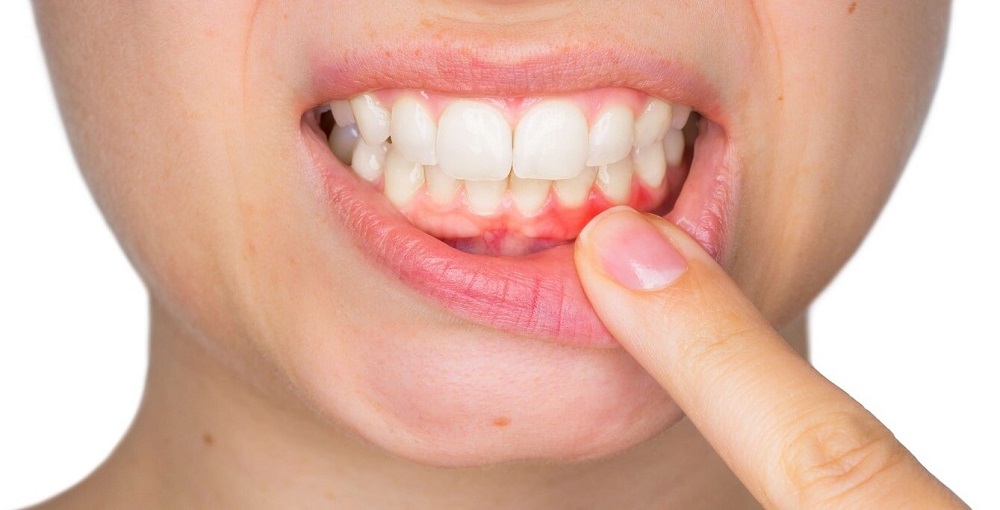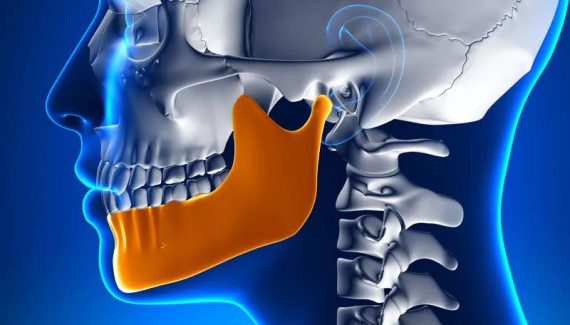Gum recession is an uncomfortable condition that can lead to tooth loss and sensitivity. Surgical procedures can treat the problem. In some cases, it is possible to repair the affected tooth root using soft tissue grafting or dental tissue graft treatment.
Depending on the severity of the disease, treatments and remedies will help reduce the appearance of receding gums and protect sensitive tooth roots. However, maintaining good oral hygiene is the best way to prevent gum recession. You should also visit your dentist for guidance on how to fix receding gums.

Contents
What Causes Gum Recession?
There are several causes of gum recession, which include genetics, poor oral hygiene, and gum disease. Some people are genetically predisposed to receding gums. People with receding gums must visit the dentist regularly and avoid eating foods that help receding gums to grow and make them worse.
Other significant causes are tobacco and alcohol consumption which can harm the gum tissue. Gum recession can also occur due to soft tissue trauma. This could occur during contact sports, hard falls, or improperly fitting partial dentures. Another cause is improper brushing habits.
Recessive gums are a common symptom of periodontal disease. Many people would rather use homemade remedies and more natural ways, best for receding gums. While gum surgery can be a great way to fix receding gums, they are often painful and expensive. It should be your last resort as there are several remedies to reverse the receding gums.
Also Read: Foods That Fight With Receding Gums
How Can Gum Disease Be Reversed?
Gum disease is a severe issue that can lead to periodontitis and tooth loss. The good news is that it is curable when caught in its early stages. It is essential to have regular checkups to detect the symptoms. Ignoring the signs of gum disease can lead to the condition becoming permanent.
Treatment for gum disease involves eliminating the bacteria that cause the condition and restoring the gums and teeth. Early treatment can reduce the severity of the problem and may even reverse the damage done to the teeth. Some treatment options include soft tissue grafting, scaling, and root planning. But if the disease is already advanced, the dentist may need to extract the teeth and replace them with a new one. A good diet is best for receding gums.
Avoiding sugary foods is essential to reducing plaque and bacteria in your mouth. Additionally, drinking plenty of water helps control oral bacteria. Also, you should avoid smoking and excessive alcohol use, both of which are associated with the risk of developing periodontal disease.
If you have receding gums, you may want to see a dentist, who will be able to prescribe a reliable treatment that might be best for receding gums. However, if you do not feel comfortable visiting the dentist or using expensive treatments, some natural methods can help.
See Also: Early Stages of Gum Disease
How to Reverse Gum Recession Naturally
1. Natural Remedies:
If you are worried about the state of your gums, you may want to consider a natural remedy best for receding gums. Many natural products on the market can reverse the signs of gum recession. These products include peppermint essential oils, coconut oil, turmeric, and many more. Including these homemade remedies in your daily oral practice can neutralize harmful bacteria and treat gum recession.
2. Turmeric:
If you are wondering how to fix receding gums, consider using turmeric. It is a potent anti-inflammatory, antioxidant, and antimicrobial compound found in plants. This substance benefits oral health, and studies have found that it can help treat conditions such as periodontal disease and oral cancer. Turmeric can be used as a topical gel, mouthwash, and subgingival irrigant. Its anti-inflammatory and antimicrobial properties make it an excellent natural remedy for gum disease.
Turmeric can also whiten teeth. It works by removing minor stains and surface plaque.
3. Aloe Vera Gel:
An effective home remedy, best for receding gums, is applying aloe vera gel to the affected area. This natural gel contains anti-inflammatory, antibacterial, antiviral, and antiseptic properties. The gel is often used as a mouthwash or injected into the gums. A single treatment should last about 3 minutes. Due to its antibacterial and anti-inflammatory properties, an aloe vera gel can help reduce pain in gums. Moreover, aloe vera mouthwash can also help strengthen the gums and loose teeth. It is also safe to use and does not contain any chemicals.
4. Coconut Oil:
Coconut oil is known for its healing properties. It helps restore gum tissue and provides antimicrobial benefits, which help prevent tooth decay. It also works as a general oral hygiene product. It helps keep gums healthy and can help prevent cavities, bad breath, and heart disease. It is considered to be best for receding gums. It reduces gum inflammation, reduces tooth decay, and treats bacterial infections. Applying it daily can help prevent and reverse gum recession. However, coconut oil should never replace proper dental care.
5. Peppermint Essential Oil:
Peppermint essential oil, in particular, has antiseptic properties and can be used in mouthwash. It also has anti-inflammatory properties, which makes it an excellent remedy for rashes and other oral ailments, including receding gums. Peppermint essential oil has a minty, fresh aroma, which helps keep your breath fresh all day. It is also helpful in preventing gingivitis. The essential oil’s antibacterial properties will eliminate harmful bacteria, thus preventing gum disease. This essential oil may even help fight cavities. Reach out to your dentist to learn more about Peppermint oil and how to use it for better oral health.
6. Sesame Oil:
Sesame oil can be used in several ways to treat receding gums, as its antibacterial properties can help remove plaque and toxins from the mouth and gums. It can also provide a protective coating for the gums and prevent dental decay. It is also an effective mouthwash for those who have receding gums. It has antibacterial, anti-inflammatory, and antioxidant properties that will help improve your oral health. It can help reduce plaque buildup and heal bleeding gums. Make sure to rinse your mouth thoroughly after using sesame oil since spitting it into the sink could clog it.
7. Lemon:
Lemon is another excellent oil considered to be best for receding gums. Lemon contains antibacterial, antiviral, and antifungal properties that protect your mouth from infection. It can be used to help prevent receding gums by stimulating tissue growth. It can also stop bleeding gums. If you or someone you know suffers from gum recession and is looking for reliable treatment, get in touch with your dentist or visit some trustworthy dental clinic in your area to learn more about the situation and how to fix receding gums and related problems.
8. Green Tea:
Green tea has been known to reduce inflammation and can be beneficial for receding gums. If you’re experiencing pain along the gum line or notice that your teeth have gotten longer, you may have receding gums. Drinking green tea daily can help reduce swelling and inflammation and improve the attachment of your gums and teeth. It also contains polyphenols, which neutralize free radicals that can damage the mouth and cause gum irritation. It may also improve the overall health of your gums and prevent future recession.
9. Tea Tree Oil:
Tea tree oil is another effective ingredient that can help reverse gum recession. Its antibacterial and antiseptic properties can help fight against oral bacteria, and it can be a great natural alternative to toothpaste. However, it is essential to note that tea tree oil is not safe to consume internally and should be spitted after use. A safe way to use tea tree oil is to dilute it well before using it. It is a potent antifungal agent that helps destroy bacteria and prevents tooth decay. It can also help you deal the gums recession and related oral disorders.
10. Myrrh:
Myrrh is a natural remedy considered best for receding gums, and it is used in a paste form and can be applied to the affected area using a toothbrush. The myrrh powder can also be mixed with water and applied to the gums. It has antiseptic properties and helps in fighting against gum disease. In addition to being used in mouthwash, the essential oil of Myrrh contains antimicrobial properties that can help prevent receding gums. It can also be applied to the gums directly. Ask your dentist to know more about Myrrh and how to fix receding gums with it.
11. Oil Pulling:
Essential oils used for oil pulling are excellent remedies for receding gums. Oil pulling is a practice that helps reverse gum recession. The gums are the soft tissue that covers the roots of the teeth and helps keep them in place. This technique helps restore the natural balance of bacteria in the mouth. However, oil pulling is not recommended for everyone. Some people report stomach upset after using it. It can also cause lung problems, especially if inhaled the oil. It’s essential to check with your doctor to make sure you don’t have any allergies before using oil pulling.
Also Read: Dental Filling Procedure
Key Takeaways
Taking good care of your gums is crucial to overall health and well-being. If your gums are not well-cared for, you may develop cavities, or your teeth may turn yellow. As a result, your gums will recede and begin exposing more of your tooth roots. Your dentist will be able to suggest a treatment plan for you along with some remedies best for receding gums. You can easily find these natural remedies for receding gums in your garden or kitchen, and if not, you can get them anytime from some nearby grocery store as they are widely used these days.
To avoid gum recession, you must have a healthy diet and practice proper oral hygiene. In addition, you must monitor changes in your mouth. Gum recession can be very painful and create deep gaps in your mouth. These gaps can harbor bacteria that are difficult to clean. It can also expose the root of your tooth. If this continues untreated, it can lead to pain, discomfort, and tooth loss. If you notice that your gums are receding, you should consult a dentist, who will be able to give you advice about how to prevent this condition.
Post You May Like:


